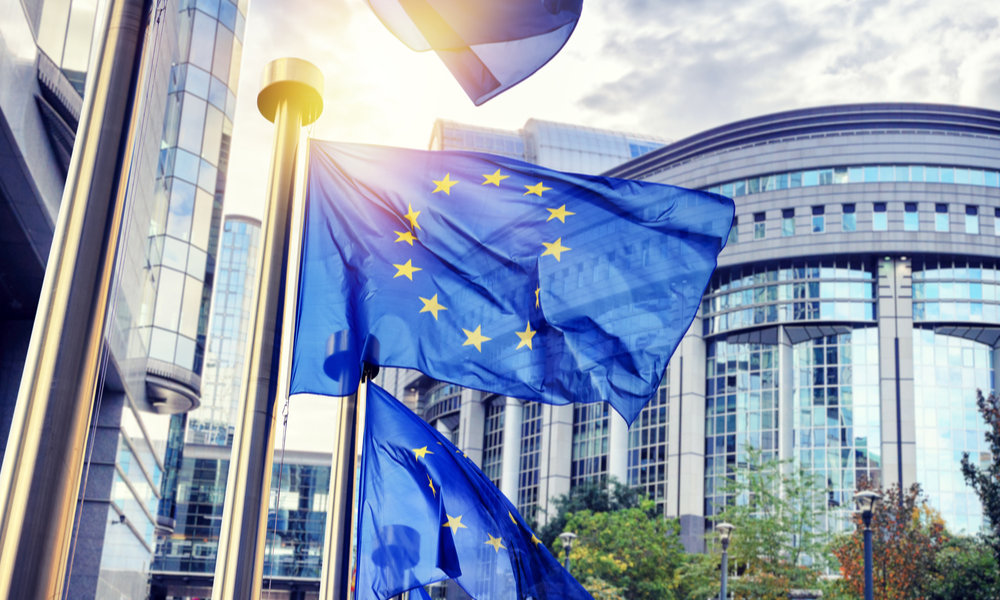Apple Could Be off the Hook for Its $14.9 Billion Irish Tax Bill (For Now)
 Credit: symbiot / Shutterstock
Credit: symbiot / Shutterstock
Toggle Dark Mode
It appears that Apple’s long-running legal battle with the European Union over billions of dollars in back taxes allegedly owed to the Irish government could be over, with the EU’s General Court — the second-highest court in the European Union — overturning the European Commission’s 2016 ruling that would have required Apple to pay almost $15 billion to the Irish government.
Apple has been doing business in Ireland for almost three decades, at least partially due to the better tax breaks available to it in that country, however, on the heels of a two-year investigation, the European Commission decided back in 2016 that the “sweetheart deal” that the Irish government had given to Apple, which worked out to an effective tax rate of less than 1 percent for the company, was actually a violation of the EU’s rules on “state aid.”
The Commission’s investigation concluded that Ireland granted illegal tax benefits to Apple, which enabled it to pay substantially less tax than other businesses over many years.
2016 European Commission ruling
Not surprisingly, even the Irish government didn’t agree with the EU’s position, asserting that it “exceeded its powers”, and Apple of course vowed to appeal the decision to the European General Court, with CEO Tim Cook calling it “total political crap.”
Of course, things like this can take years to work their way through the courts, and in the meantime Apple eventually agreed to begin paying out the $15 billion in back taxes, although it still made it clear that it hadn’t thrown in the towel on its appeal.
Today, however, the European General Court announced its ruling, stating that it was annulling the decision originally made by the EU Commission.
Naturally, both Ireland and Apple welcomed the decision, with the Irish Department of Finance reiterating that Apple did not receive any special treatment, and always paid “the correct amount of Irish tax” which was “in line with normal Irish taxation rules.”
In a statement to Bloomberg, Apple also added that the case was really “not about how much tax we pay, but where we are required to pay.”
Is It Really Over?
The case may not be entirely over, however, since the European General Court is only the second-highest court, which means that the European Commission still has the potential to appeal the ruling to the European Court of Justice, which is the EU’s supreme court.
It’s important to note that the ruling by the European General Court didn’t actually exonerate Apple and the Irish government, rather it simply ruled that the Commission did not adequately prove its case that Apple was given an unfair advantage by the Irish government.
The General Court considers that the commission did not prove, in its alternative line of reasoning, that the contested tax rulings were the result of discretion exercised by the Irish tax authorities.
European General Court
So as 9to5Mac points out, this is more about the European Commission losing than Apple actually winning anything, at least at this point. Margrethe Vestager, who was the EU’s antitrust chief at the time of the original ruling and now serves as the Executive Vice-President of the European Commission, still stands behind the Commission’s position, adding that they will “carefully study the judgment and reflect on possible next steps.”
The Commission stands fully behind the objective that all companies should pay their fair share of tax. If Member States give certain multinational companies tax advantages not available to their rivals, this harms fair competition in the EU.
Margrethe Vestager, Executive Vice-President of the European Commission
Vestager also added that the ruling by the European General Court is inconsistent with similar judgments handed down in relation to other companies, including tax breaks given to Fiat in Luxembourg, and to Starbucks in the Netherlands, both of which were deemed to violate EU State aid on giving preferential tax treatment to specific corporations that could be seen as exceptions to the normal rules.
So it definitely sounds like the European Commission is planning to appeal the decision to the higher court, and since it also seems like the only reason it lost this round is because it didn’t do its homework properly, the final outcome could still be very different if the Commission is able to successfully prove its case, which is essentially that Apple was given an advantage by the Irish government that would not have been available to other similar companies or in other European Union member states.






